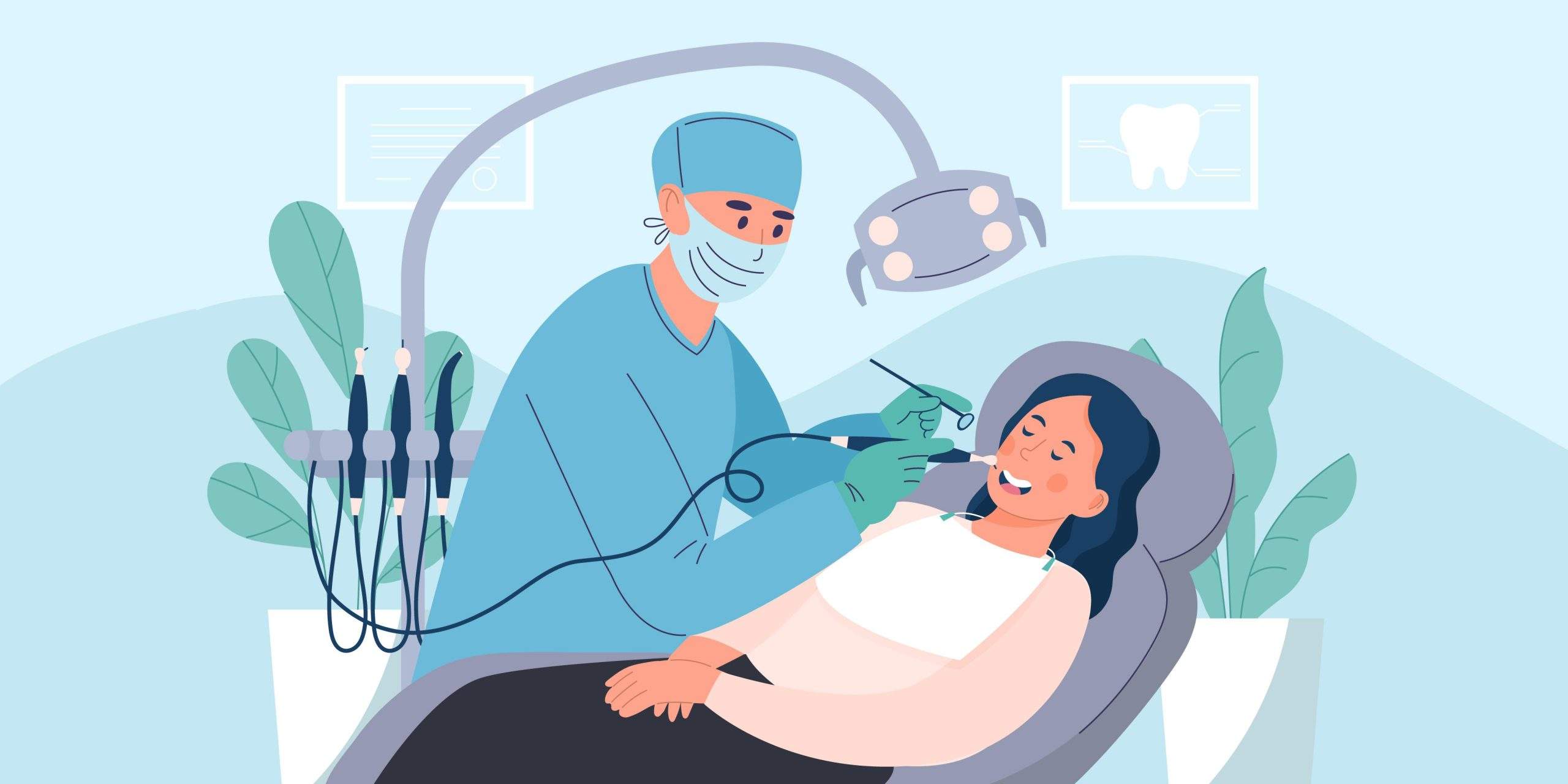When it comes to the battle against mouth cancer, knowledge and understanding are your strongest allies. At Mahatma Gandhi Cancer Hospital and Research Institute (MGCH&RI), we’re here to provide you with a comprehensive guide to radiation therapy for mouth cancer. Our mission is to empower you with the information you need to make informed decisions about your treatment journey.
Why and Where Radiation Therapy Matters for Mouth Cancer
Mouth cancer, also known as oral cancer, can be a daunting diagnosis. This form of cancer affects the mouth and oral cavity, including lips, tongue (anterior two-thirds only), cheeks or buccal mucosa, alveolus both upper and lower, gingiva-buccal sulcus (GBS), and floor of mouth.
While surgery or radiotherapy is the mainstay of treatment in early stages, like stage I and II, the treatment for advanced stages differs a little. For stages III and IV, it is surgery, if suitable, followed by radiotherapy or chemoradiotherapy as the situation warrants according to post-surgery biopsy report. If surgery is not suitable due to any reasons at any stage, then radiotherapy or chemoradiotherapy remains the option up to stage IVA.
Sometimes, chemotherapy is given before surgery to make the patient suitable for surgery by reducing the disease burden. It is then called Neo adjuvant chemotherapy (NACT). If the tumor is so big and advanced that it is inoperable and also does not respond to chemotherapy, then radiotherapy is given to allay some symptoms, It is then called Palliative Radiotherapy and the intention is no longer curative.
Radiotherapy approaches to mouth cancer at Mahatma Gandhi Cancer Hospital and Research Institute (MGCH & RI )
Understanding the various approaches to radiation therapy is essential. At MGCH&RI, we employ radiation therapy in two primary ways for mouth cancer:
- Post-Surgery Radiation: After surgical removal of the tumor, radiation therapy may be recommended after careful analysis of post-surgery biopsy reports to reduce the risk of cancer recurrence. This is a proactive approach aimed at ensuring that no cancerous cells are left behind. It is called Adjuvant Radiotherapy.
- Primary Treatment: In case surgical treatment is not feasible, radiation is given with a full dose. It is then called radical radiotherapy, and the intention is to cure the patient.
When, within after 6 months of complete treatment, the disease comes back, it is called recurrence. Recurrent disease is treated either by surgery or by radiotherapy. When 2nd time radiation is given, it is called reirradiation, and extreme caution is exercised to save normal parts, and radiation is directed only to the diseased part.
Exploring Radiation Therapy Options
MGCH&RI offers a range of radiation therapy options tailored to meet the unique needs of each patient. These cutting-edge techniques include:
- Intensity-Modulated Radiation Therapy (IMRT): IMRT uses advanced computer programs and a collimator to precisely shape radiation beams according to the target delineated. This technique delivers accurate doses to the tumor while protecting healthy surrounding tissues.
- Image-Guided Radiation Therapy (IGRT): IGRT relies on real-time imaging scans and specialized software to ensure the precise delivery of radiation. This enhances treatment accuracy, minimizing the impact on healthy tissues.
- Adaptive Radiotherapy: In order to account for either temporal changes in anatomy (such as tumor size, internal motion, variations in respiratory patterns, or weight loss) or changes in tumor biology/function (such as hypoxia), adaptive radiotherapy involves making changes to the radiation treatment plan given to a patient during a course of radiotherapy.
- Brachytherapy: Brachytherapy involves the placement of radioactive material within the body using needles or catheters. This technique is also effective for recurrent mouth cancer, targeting nearby cancer cells directly, obviating the need for external radiation and hence facilitating a better quality of life post-radiation.
- Proton Therapy: Proton therapy utilizes high-energy proton beams that stop within the tumor, deposit energy there and kill cancer cells, then reduce damage to healthy tissues. It has grit utility in mouth cancer and also in some recurrent settings.
- Chemoradiation: Combining chemotherapy with radiation enhances tumor sensitivity, to radiation and enhances cure probability. This comprehensive approach is carefully tailored to each patient’s unique situation.
- Clinical Trials: Participating in clinical trials at MGCH&RI provides access to the latest advancements in cancer treatment. Our researchers are actively exploring innovative therapies such as immunotherapy and targeted treatments, offering hope and potential breakthroughs.
Managing Side Effects
Radiation therapy may come with side effects, but our dedicated team of radiation oncologists at MGCH&RI is committed to minimizing these effects. Common side effects include skin changes, hoarseness of voice, taste alterations, dry mouth, dental concerns, pain, sores, or redness in the mouth. Our Radiation Oncologists, Dental Oncologists and other teams facilitate rehabilitation of patients having side effects.
Your Journey with MGCH&RI
Facing mouth cancer is undoubtedly a formidable challenge, but at MGCH&RI, you are not alone. Our dedicated team is committed to providing you with the best possible care, and minimizing side effects, by continually advancing and adapting treatment options. Your well-being is our top priority throughout your radiation therapy experience.
At MGCH&RI, we’re not just treating mouth cancer; we’re empowering you with knowledge, hope, and the latest advancements in medical science. Together, we stand strong against mouth cancer, ready to fight alongside you on your journey to recovery…

Written by
Dr. Chitta Ranjan Kundu
MD, Radiation Oncologist
Mahatma Gandhi Cancer Hospital and Research Institute, Visakhapatnam











